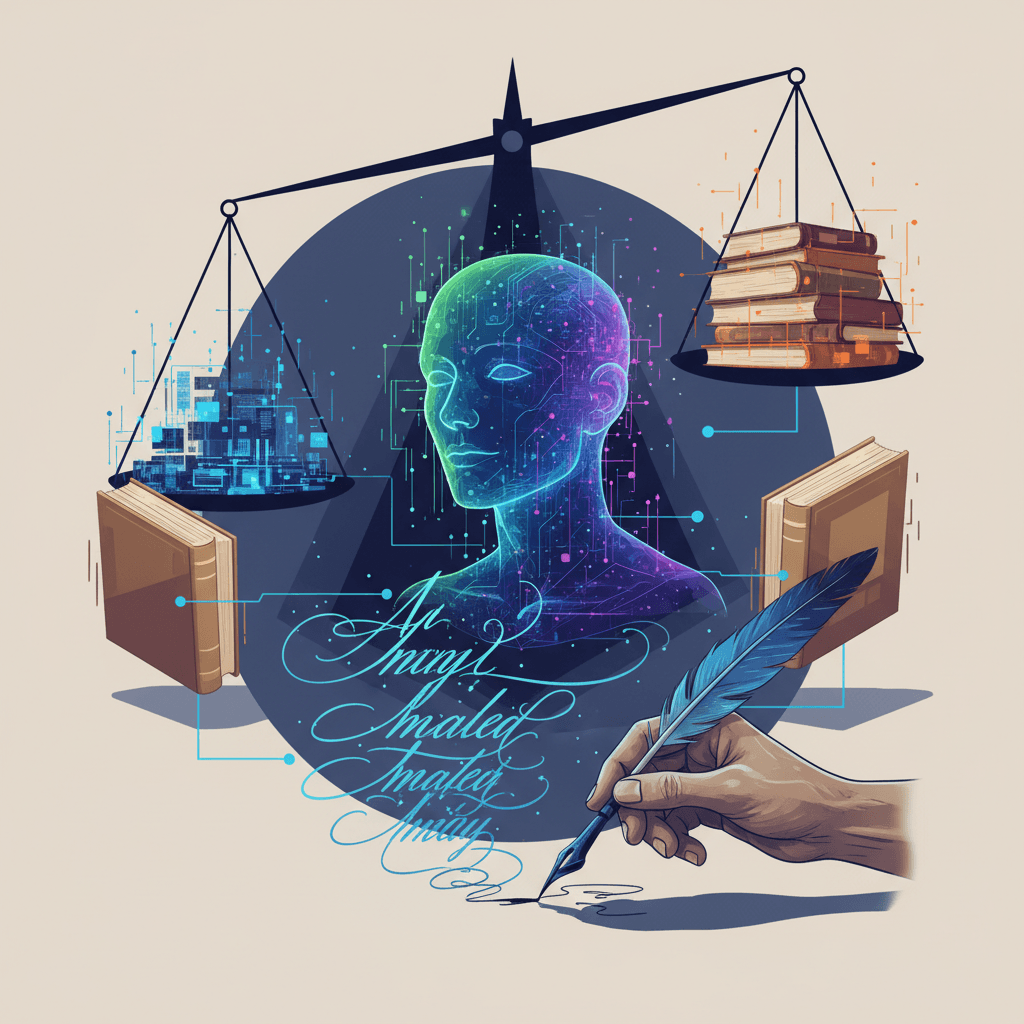AI Masters Author Styles, Outperforms Humans, Threatens Copyright.
AI masters authors' voices for just $81, outperforming human experts and upending copyright law's market impact test.
October 26, 2025

A groundbreaking study has revealed that artificial intelligence models can replicate the writing styles of famous authors with astounding accuracy, using as few as two of the author's books for training. In blind evaluations, both expert and lay readers often preferred the AI-generated text over passages written by professional human imitators.[1][2] This development holds significant economic and legal implications, particularly for copyright law and the numerous lawsuits filed by authors against AI companies for using their work without permission.[3][4][5] The research, which compared the outputs of frontier AI models like ChatGPT with those of MFA-trained writers, challenges previous assumptions about the creative limits of AI and intensifies the debate over fair use in the digital age.[2][3][4][5]
The core of the study involved a direct comparison between human and machine. Researchers tasked candidates from top Master of Fine Arts programs with producing excerpts in the styles of 50 acclaimed authors.[2] Concurrently, they used large language models under two conditions: one using standard prompts and another where the AI was fine-tuned on the complete works of each author.[3][4] When using simple prompts, the AI's output was strongly disfavored by expert readers for both stylistic accuracy and overall writing quality.[2][3][4][5] However, the results completely flipped when the AI was fine-tuned. In these instances, experts significantly favored the AI-generated text, finding it superior in both fidelity to the author's style and general quality.[2][3][4][5] This reversal is attributed to the fine-tuning process, which appears to eliminate the stylistic quirks and cliché density often associated with AI-generated text, making it almost indistinguishable from human writing.[2][3] In fact, state-of-the-art AI detectors rarely flagged the fine-tuned outputs, identifying only 3% as AI-generated compared to 97% for the text from in-context prompting.[3][4][5]
The economic ramifications of this technological leap are profound. The study highlights a dramatic cost disparity: the median expense for fine-tuning an AI to mimic an author's style was a mere $81, a 99.7% reduction compared to the tens of thousands of dollars it can cost to commission a professional writer for a similar task.[1][3][5] This economic pressure threatens to devalue the market for original creative works and the livelihoods of authors, especially given that much of the data used to train these powerful models is allegedly sourced from illegally pirated book datasets.[1] The findings provide potent empirical evidence directly relevant to the legal battles raging in the United States, where dozens of copyright lawsuits have been filed against AI developers.[2][6] Authors and guilds argue that the unauthorized ingestion of their books for training AI constitutes copyright infringement, a claim that tech companies have largely countered with the "fair use" defense.[2][7]
This new evidence directly challenges a key pillar of the fair use argument. The fourth factor of the fair use test considers the "effect of the use upon the potential market for or value of the copyrighted work."[2] The study's demonstration that AI can produce non-verbatim, high-quality writing that readers prefer to human expert imitations suggests a clear and detrimental market substitution effect.[2][3] Legal scholars involved in the research argue that this capability can no longer be ignored in fair use assessments.[2] The ability of AI is not merely to copy but to create derivative works that can compete with and potentially supplant the original author's market.[8][5] This moves the legal conversation beyond verbatim copying to the more nuanced and challenging territory of stylistic appropriation, a new frontier in copyright law.[8]
In conclusion, the ability of AI models to master and replicate an author's unique voice from a small sample of their work marks a pivotal moment for the creative and legal industries. The proficiency of fine-tuned models not only blurs the lines between human and machine creativity but also presents a direct economic challenge to authors and creators. As court cases proceed, these findings will undoubtedly play a crucial role in shaping the future of copyright law. The central question is no longer whether AI can produce high-quality literary text, but how society will regulate a technology that can convincingly echo the masters, threatening the very market for human ingenuity that copyright was designed to protect. The outcome of this debate will have lasting consequences for the future of authorship and the intellectual property landscape in the age of artificial intelligence.